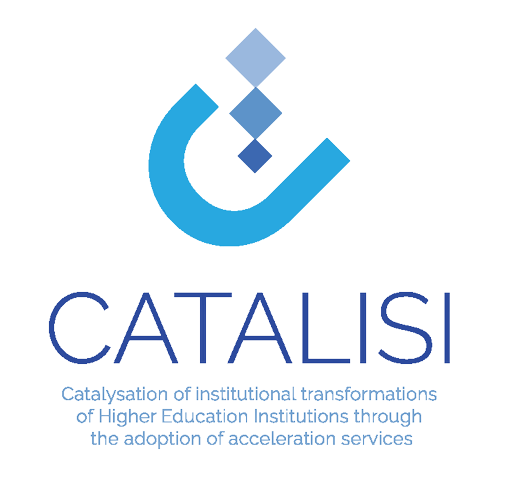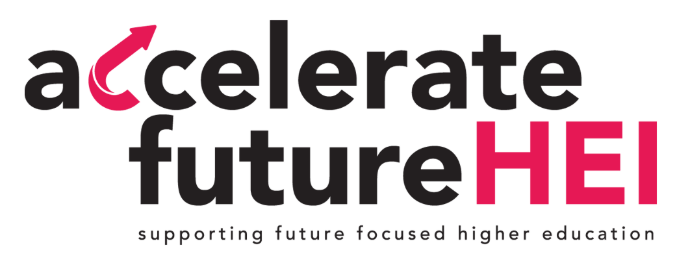Welcome to aUPaEU
Second Newsletter!
In the first year and a half since the start of the project, aUPaEU has made great strides in laying the groundwork for the next year's work and achieving our first results.
Our deliverables show the progress we have made.
Agora Overview
Report on the implementation gap analysis and the ideation of the digital transition

The aUPaEU project, with its Agora platform at its core, represents a paradigm shift in supporting HEI transformation. By addressing the fragmented nature of information systems, providing value-added acceleration services, and facilitating stakeholder identification, Agora sets a new standard for empowering HEIs across Europe to achieve their digital transformation aspirations. This unified information ecosystem serves as a transformative foundation for unlocking the true potential of acceleration services.
The Agora platform emerges as a transformative catalyst for HEIs, empowering them to navigate the complexities of digital transformation with greater agility and achieve their strategic goals. By leveraging Agora, HEIs can: Gain comprehensive insights into their own resources and expertise, Identify and connect with suitable partners, Receive personalised recommendations for acceleration services.
The establishment of the Agora necessitates the selection of a technical platform that effectively addresses the identified challenges, particularly the complex business processes involved in offering and consuming the acceleration service catalogue.
Inventory, Action Plan and Business Processes
Inventory, Action Plan and preliminary Set of Business Processes

The Institutional Transformation of HEIs in line with the Higher Education Transformation Agenda is a major challenge that requires careful planning and allocation of resources. It can be beneficial to observe and learn from more advanced alliances, identify operating good practices, and adopt them to manage changes. Transformation efforts should consider and learn from best practices.
In this context, it is beneficial to provide an inventory of operating acceleration services at Unite! and EPICUR partner universities, to display and explain the business processes that are part of the Agora platform and to offer an action plan for the implementation of the Higher Education Transformation Agenda. These three aspects respectively provide: empirical data about operating services at EPICUR and Unite! partner universities and offers an outline of potential acceleration services to be implemented in the Agora platform; a conceptual understanding of the Agora in terms of its underlying processes and user relation; a preliminary recommendation for HEIs and Alliances on how to achieve institutional transformation in accordance with the Higher Education Transformation Agenda.
Acceleration Services Catalogue
Preliminary analysis and plan, outline of the acceleration services catalogue

The aUPaEU project recognizes the need for acceleration services to expedite the transformative process of HEIs. By integrating these services into the higher education sector, the project aims to accelerate institutional transformations and contribute to the establishment of a single European market for R&I.
One of the direct objectives of aUPaEU is the creation of an acceleration services catalogue, which will consist of collections of related offers, reflecting a collaborative approach to HEI transformation.
The methodology for identifying the initial set of acceleration services is rooted in design thinking methods, which prioritise a predominantly bottom-up approach with elements of top-down input.
In the process of selecting the initial set of services, a comprehensive approach that combined bottom-up and top-down criteria was employed. This would ensure that the chosen services could effectively address stakeholders' needs while aligning with institutional goals and priorities: Value to Stakeholders, Feasibility and Strategic Alignment.
Testing
Draft report about the planned test with user groups

A rigorous methodology has been outlined for the acceleration services assessment tests to verify that the aUPaEU services and the Agora can support HEIs in accelerating their institutional transformation. The testing process will be an iterative endeavour, continuously verifying the effectiveness of acceleration services in both platform implementation and process execution. This approach ensures a responsive and adaptive methodology that remains aligned with the evolving needs of the user groups throughout the digital transition. The designed methodology includes qualitative and quantitative data collection, such as: Iterative focus groups sessions, Interviews, Surveys and Platform usability testing.
The main objectives of these tests are: 1) Test the acceleration services developed with identified user groups; 2) Validate the Minimum Viable Solution (MVS) of the Agora of acceleration services; 3) Monitor how the developed services facilitate user advancement in institutional transformation towards future universities. These transformations focus on six areas of the HEI agenda: capacity, infrastructure, and resource sharing; researcher career attractiveness; collaboration with R&I ecosystem actors; open science; societal outreach; and gender equality.
Communication, Dissemination, Stakeholders
First reporting on Communication and Dissemination plans and stakeholders mapping


Communication and dissemination activities aim to engage and inform users of the project's primary findings and activities. The main goals of aUPaEU’s communication and dissemination strategy involve providing universally comprehensible information on the project goals and results, increasing the project’s visibility, promoting cooperation and active involvement of actors and stakeholders, and creating communication models that facilitate the involvement of actors and stakeholders.
Stakeholders mapping: Research and Innovation is an area that will continue to grow in importance in the foreseeable future, and therefore stakeholders’ participation is crucial. Stakeholder identification processes have been used to identify macro categories of stakeholders involved in R&I in Europe, which are the stakeholders of the aUPaEU: citizens, HEIs and research institutions, University alliances, HEI and research institutions networks, public administration, Industry and businesses.
Collaboration with Sister Projects
aUPaEU continues its relationship with Sister Projects CATALISI and Accelerate Future HEI. The three projects are collaborating and aligning to maximise the impact on the european higher education landscape.
The first outcome is the development of a joint Policy Brief.
European Policy Brief
Acceleration Services In Support Of The Institutional Transformation Of Higher Education Institutions

The Policy Brief Report is proposed as a joint contribution of the three sister projects to the generation of ERA(European Research Area)-related policy insights. This document emphasises the vital role of European universities in addressing competitiveness and societal challenges. It highlights the need for support in research and innovation, with ERA Action 13 focusing on empowering higher education institutions through excellence, capacity building, and fostering synergy between education and research. The Horizon Europe Framework Program is identified as a key ally in achieving these objectives, offering "Acceleration Services" aimed at transforming institutions and promoting excellence throughout the ERA. It explains the most relevant methodologies shared to engage and support user groups and university communities, giving emphasis to co-creative and interactive approaches in supporting HEIs and university communities to develop in line with the ERA priorities. In this respect, future activities will be oriented towards progressing in deeper alignment between the project activities and the transition towards the new ERA Policy Agenda 2025-2027. An operational and practical link between the project activities and the advancement of the ERA objectives, particularly Action 13 of the ERA Policy Agenda, will be developed by seeking direct connections with ongoing initiatives of the Commission. The document identifies the main points of synergies that represent opportunities through which these challenges could be addressed, potentially serving as priorities for future policy actions. Furthermore, it identifies complementarities and gaps found in the current policy agenda, shedding light on areas that require further consideration and development.
CATALISI Project
As one of the three sister projects aimed at accelerating institutional reform of Higher Education Institutions (HEIs) across Europe, CATALISI focuses on analyzing how their governance can be changed and improved to better address societal challenges and better interact with the Science, Technology and Innovation system. To this end, the project is implementing activities that support the participating universities-partners (called in the project “implementers”) in the development and implementation of a strategy and individual pathway for institutional transformation.
In this mission, the project uses seven acceleration services tailored to HEIs, including Living Labs, Design Lab for Transformational Pathways: strategy and agenda setting, Counselling, Reinforcement of Human Capital: Capacity building & outreach, Predictive studies on Skills Anticipation, Community of Practice (CoP) and a marketplace for funding opportunities and collaborations.
During the first year of the project, the consortium produced seven deliverables that have been approved by the European Commission. We would like to present 4 of them here. Firstly, detailed analysis (D1.1-Acting-LLs Needs Assessment) carried out by each of the seven Implementers to explore and assess the local context, barriers and framework conditions influencing the transformation process, the CATALISI universities-partners, with the support of the facilitating partners, successfully formulated their Action Plans and managed to define their strategy and individual pathway for their institutional transformation (D1.2-Acting-LLs Action Plans). Furthermore, through Reinforcement of Human Capital: Capacity building & outreach – one of the seven acceleration services - the CATALISI consortium developed guidelines for the set-up and organization of Mobilization and Mutual Learning (MML) workshops and Twinning schemes (D2.1-Knowledge sharing and Mutual Learning Plan). MML workshops and Twinning will assist HEIs in acquiring knowledge of workable solutions that can be implemented in their context at institutional level. Finally, the framework of the counseling service was defined (D3.1-Coordination And Definition Of Counseling Service). The counseling service will be performed as a cross-cutting service available throughout the duration of the project for implementers (HEIs) based on their identified needs.
Accelerate Future HEI:
Reflections on Year One
Led by the University Industry Innovation Network (UIIN), the Accelerate Future HEI initiative brings together twelve European partners to develop and implement acceleration services. In its first year, the twelve partners of the Accelerate Future HEI project collaboratively gained a better understanding of the higher education status quo and desired future state which resulted in Strategic Vision Statements Towards Becoming Entrepreneurial and Innovative Universities.
These statements are based on pre-scanning and focus groups where each testing partner developed a strategic vision towards becoming an Entrepreneurial & Innovative University. Here you can discover each institution’s Strategic Vision Statement that describes their desired transformation high-level objective as well as their motivations, ambitions and strengths to achieve it.
The Synthesis Report: Key findings on current state analysis summarises the findings and insights, showing common and specific challenges associated with the institutional transformation across all testing partners. It includes the research and activities undertaken by the nine HEI testing partners including pre-scanning, and asset mapping, desired future state focus groups and a current state survey. The key learnings and findings include Entrepreneurial Activities, Entrepreneurial Mindset, Organisational Support and Impact & External Ecosystem.
Accelerate Future HEI has made improvements in enhancing the
capabilities of Higher Education Institutions (HEIs) across Europe, empowering
them to drive social and economic development. Hear
directly from their perspectives in the video collection.

